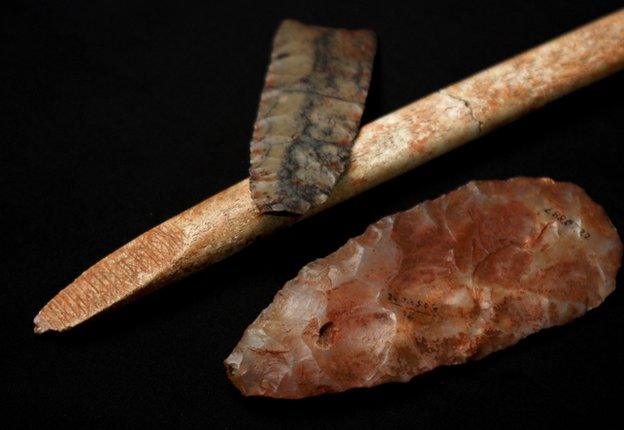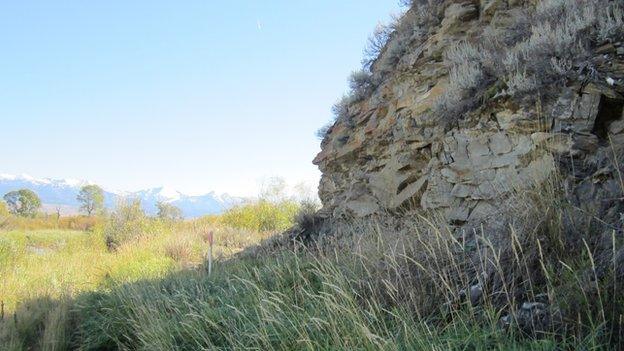Ancient American's genome mapped
- Published

Clovis stone technology was highly sophisticated
Present-day Native Americans are descended from some of the continent's earliest settlers, a genetic study suggests.
Scientists sequenced the genome of a one-year-old boy who died in what is now Montana about 12,500 years ago.
Some researchers have raised questions about the origins of early Americans, with one theory even proposing a link to Ice Age Europeans.
But the Nature study places the origins of these ancient people in Asia.
The infant was a member of the Clovis people, a widespread, sophisticated Ice Age culture in North America. They appeared in America about 13,000 years ago and hunted mammoth, mastodon and bison.
The boy's remains, uncovered at the Anzick Site in Montana in 1968, were associated with distinctive Clovis stone tools. In fact, it is the only known skeleton directly linked to artefacts from this culture.
But the origins of the Clovis people, and who they are related to today, has been the subject of intense discussion.
Eske Willerslev, from the University of Copenhagen, and his colleagues were able to extract DNA from the bones of the Anzick boy and map his genome (the genetic information contained in the nucleus of his cells).
The researchers found that around 80% of today's Native Americans are related to the "clan" from which the boy came.

A pole marks the site where the burial was found
The result casts doubt on theories that the Clovis were descended from Europeans or colonists from Oceania.
The former theory relies, in part, on close similarities between Clovis tools and those of the Solutrean culture, which thrived in Ice Age France and Spain.
The latest results place the homeland for Native American peoples - including the Clovis - in Siberia.
Interestingly, however, the teams found that Native American ancestors coming in from Asia split into two groups.
One group was ancestral to native peoples presently living in Canada and the other one - which is represented by the Clovis boy - was ancestral to virtually all Native Americans in South America and Mexico.
In the US, many native groups are suspicious of contributing to genetic surveys, hampering the collection of data.
- Published20 November 2013
- Published12 July 2012
- Published24 March 2011
- Published21 October 2011